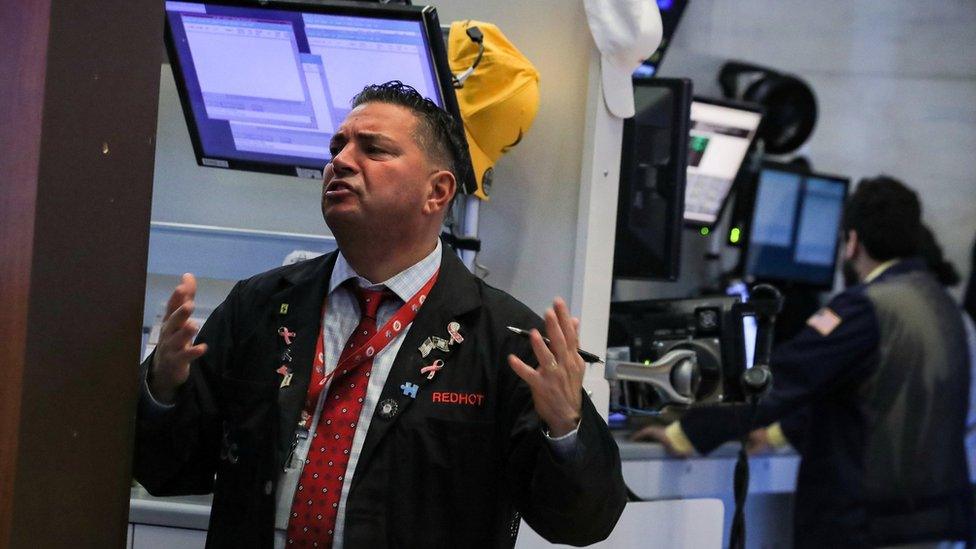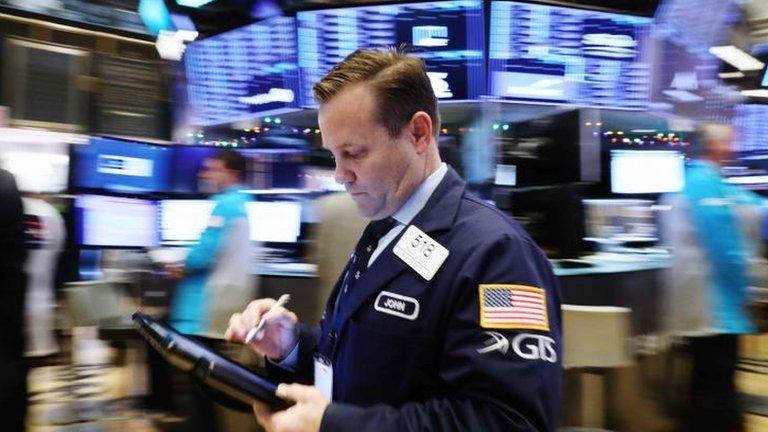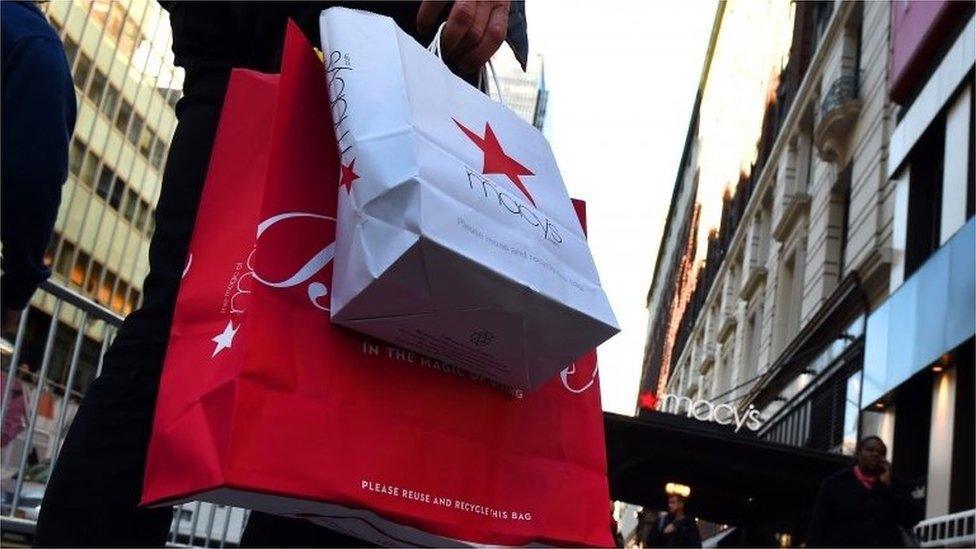Wall Street shares dive amid growth fears
- Published

US shares fell sharply on Tuesday after gains the day before
Wall Street shares tumbled on Tuesday, sending all three major indexes down more than 3% in some of the steepest declines in weeks.
The Dow Jones index shed almost 800 points, or 3.1%, to close at 25,027.07.
The S&P 500 ended at 2,700.07, down more than 90 points or 3.24%, while the Nasdaq dropped more than 283 points or 3.8% to 7,158.43.
The falls came as a closely-watched financial measure caused alarm about US economic prospects.
Increasing doubts that talks between the US and China would defuse trade tensions also fuelled the losses, reversing Monday's rise, which followed optimism about those prospects.
The declines extended a period of market turbulence that started in October, after the indexes hit record highs earlier in the summer.
The losses touched nearly every sector, with the financial industry suffering the biggest declines.
Analysts said the trigger for Tuesday's falls appeared to be concerns about the "yield curve", which measures the difference between the interest rates paid on short-term and long-term US bonds.
The gap has narrowed in recent months, as investors demand higher rates of return on short-term debt in anticipation of inflation and rate rises.
At the same time, they are accepting relatively lower rates on long-term debt, in anticipation of limited inflation and slower economic growth over the next decade.
The difference between the rates on three-year and five-year debt disappeared on Monday.
The move fuelled concerns on Tuesday that the same might happen to the gap between two-year and 10-year bonds - a more significant indicator.
Historically, when short-term rates rise above longer rates, it signals a recession may be on the horizon.
Analysts at S&P Global Ratings said they expected US economic growth to slow, not necessarily contract, in coming months, as a boost from recent tax cuts and increased government spending fades.
However, the firm added that the risk of recession had grown, reflecting "increased volatility" in financial markets.
On Tuesday, shares in financial companies, which are especially exposed to interest rates, were hardest hit.
Firms such as JP Morgan Chase, Goldman Sachs, American Express were among the biggest losers on the Dow, all down by more than 3%.
Companies at risk in the trade battle, including Apple and aerospace giant Boeing, also suffered steep declines, amid scepticism that the US and China would retreat from their tariff war.
"It was good while it lasted," said Fiona Cincotta, senior market analyst at City Index, referring to Monday's rally.
Tweets by US President Donald Trump fed the doubts, as he sent conflicting signals in a series of Twitter posts.
"President Xi and I want this deal to happen, and it probably will. But if not remember... I am a Tariff Man," he wrote.
Allow X content?
This article contains content provided by X. We ask for your permission before anything is loaded, as they may be using cookies and other technologies. You may want to read X’s cookie policy, external and privacy policy, external before accepting. To view this content choose ‘accept and continue’.
- Published3 December 2018

- Published26 October 2018

- Published2 December 2018
- Published25 August 2018
